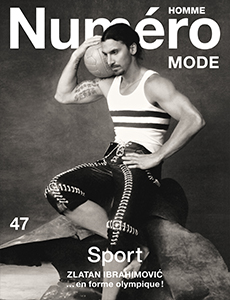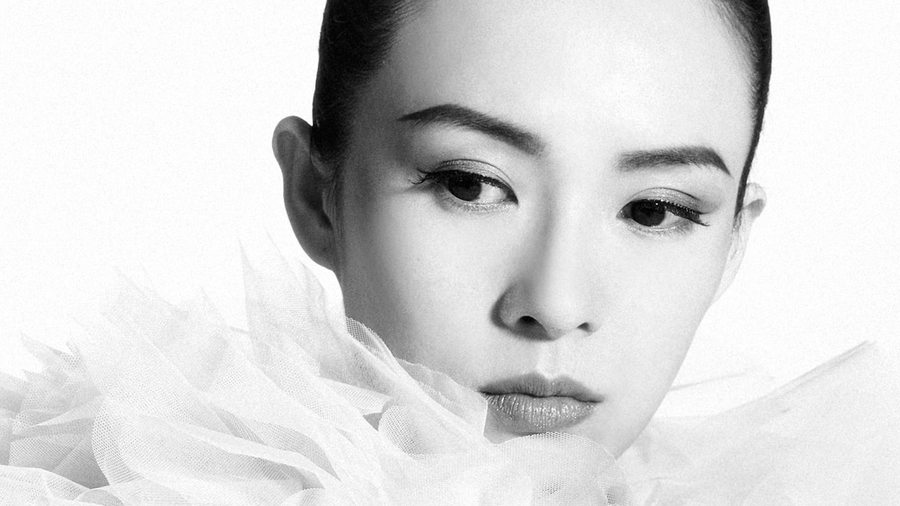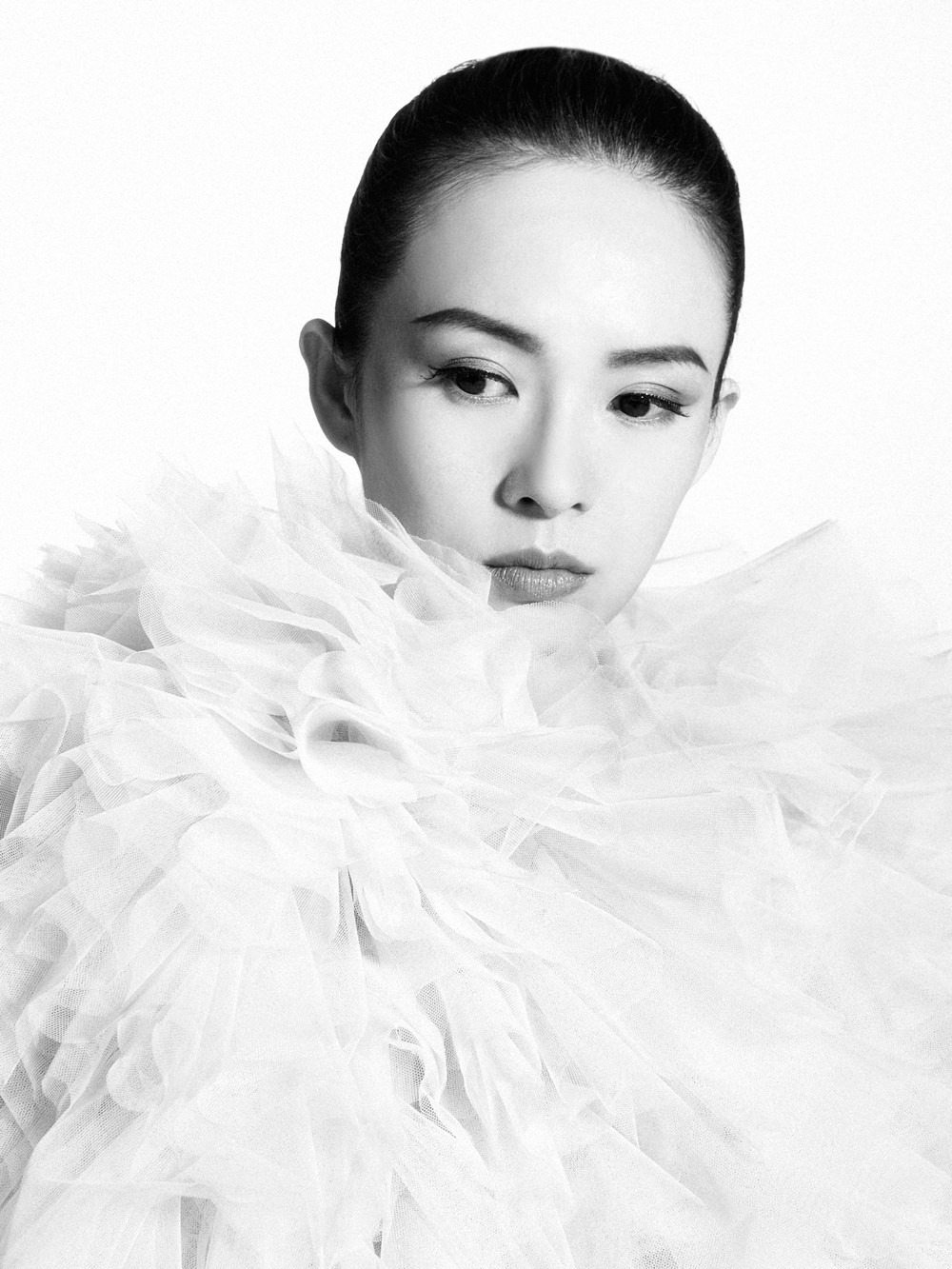Portrait of Zhang Ziyi by Sofia Sanchez & Mauro Mongiello.
It all begins with that face: oval, mischievous, jovial, almost child-like; but also mysterious, and sometimes accidentally sad. Zhang Ziyi’s visage is a fascinating cinematic surface that has been casting its spell ever since her first big success 15 years ago in Crouching Tiger, Hidden Dragon, where she wandered athletically through an imaginary forest, brandishing her murderous sword.
The woman who would become the most celebrated Chinese actress of her generation was barely 21 at the time, but had already lived several lives. Her eyes still harboured something of the child accustomed to having to work hard to get where she needed to be, a discreet obstinacy that resulted from a decade of graft, a decade that could have robbed her of her youth (and who knows if it didn’t?). For before becoming an actress – her true calling – Ziyi was forced to leave her family’s Beijing home to attend a prestigious dance school in the Chinese capital. “I was 11 years old when my teacher took me for my exams. I passed, and my relatives all went crazy. It was an important vocational school, but becoming a dancer was anything but a choice. What I learned there helped me later with action films, but at the time I got absolutely no pleasure out of any of it because the pressure was just too great.” The woman speaking these words in a five-star Parisian hotel does so with a perfect candour that masks any underlying pain, before going on to recount how several times she ran away from the overly-strict school that others had chosen for her. Despite everything, these pre-teen escapades helped her find her path. “At school it was hard. The teachers twisted my arm to get me to succeed, and I felt it was an atmosphere that wasn’t great for my self-confidence. In fact, it was a bit how I imagined the army. But despite everything, I held my head up high.” At 15, she gave up dancing for acting, and this time found a world that was made to measure, even if it she was a complete outsider. “The cinema was still a faraway world for me then. On Saturday afternoons I’d watch a film with my father. He’d fall asleep in front of the screen, but I always watched right to the end! I loved Gong Li, who was the great role model for my generation, especially since she’d gone to the same acting school as me.”
One day in 1998, director Zhang Yimou (Raise the Red Lantern) came to the Central Academy of Drama to meet young actresses for the lead role in his next film, The Road Home. Ziyi got the part, and on her terms. “I came late to the appointment. The director had waited a long time for me. I’m very independent.” In the film (which is not Yimou’s most acclaimed), Ziyi plays a young peasant girl. Looking back, she remembers the role as a unique, spontaneous moment in her career. “Zhang Yimou just wanted me to be natural. At the time I didn’t have any technique, so that suited me just fine. It’s still my favorite film: my acting was pure. If I were asked to do it today, I probably couldn’t. I try to keep this naturalness now, and incorporate it in my technique.” In complete contrast to her feelings about filming with Yimou, Ziyi doesn’t consider Crouching Tiger, Hidden Dragon the most rewarding experience of her career, despite the incredible exposure Ang Lee’s film brought her. “I can certainly say that it was difficult. I didn’t know much about martial arts and, looking back, I wonder how on earth I survived. Probably because I was young. The acrobatic stunts with cables when my character flew weren’t so professional at the time. I’d jump the equivalent of seven storeys without batting an eyelid. I just wanted to please Ang Lee.”
According to Ziyi, Crouching Tiger, Hidden Dragon changed her life only on the surface. A star, yes, but so what? She describes how, during her first Cannes Film Festival, she tried to ditch her bodyguards, whom she found oppressive, before realizing they were principally there to watch over the jewels round her neck. For Ziyi, life is elsewhere – in her work, of course, but also in her passion for contemporary art, particularly the work of her compatriot Shen Jingdong. “I collect a bit of art. I’d like to have more, but it’s so expensive! [Laughs.] I’ve been fortunate enough to visit museums in a lot of different countries. I have a collector friend who helps me out a bit. I’m interested in art for the same reasons I love the cinema. It’s very natural.” And it was therefore quite naturally that, after the interview, Ziyi snuck off to the David Bowie Is exhibition at the Philharmonie de Paris. Those she passed in the street will almost certainly remember “Wong Kar-wai really helped me find myself. There’s no script with him, you improvise on set. Everything is real, the dialogue, the feelings – it’s impossible to prepare for that! And I like that way of working.” having first seen her in international productions like Memoirs of a Geisha (2006), a film that is emblematic of a time when Asian actresses like Michelle Yeoh and Maggie Cheung topped the bill. But that’s perhaps not what counts most in her oeuvre to date. For cinephiles, it’s her work with Wong Kar-wai that has made the most lasting impression. Released in 2004 in the wake of Lou Ye’s Purple Butterfly, the amazing retro-futurist melodrama that was 2046 marked the beginning of her collaboration with the legendary director of Chungking Express, who is known for his unorthodox filming methods. “I became aware of my progress as an actress while shooting 2046. Wong Karwai really helped me find myself. There’s no script with him, you improvise on set. Everything is real, the dialogue, the feelings – it’s impossible to prepare for that! And I like that way of working. Since that film, I don’t learn my lines too far in advance. I don’t want them to be too smooth. I try to feel and invent as I go along, without being a robot. I know it can be dangerous to feel things to that point. I’m experiencing the emotion every time – I don’t cry on command, but for real.”
Her last Wong Kar-wai production was The Grandmaster (2013), a martial-arts film tinged with melancholy and regret, in which Ziyi blossomed in difficult circumstances. “Because Wong Kar-wai discovers the truth gradually, he does a lot of takes. The whole shoot took three years. I knew it would be long, but… [Laughs.] The final result was worth it though. With him and me, it’s more a friendship than a working relationship. On the set there was an older actor who was used to doing T.V. dramas that are shot very quickly. For him it was hard to understand. He got upset to the point of losing faith. Why do 30 takes? Well, because the film requires it. I feel comfortable in that environment. If Wong asked me to work with him again, I’d say ‘Yes,’ if only to find the spirit of scenes like the one in the train station [a long combat scene on a station platform] that were so hard to do. You consider it the most beautiful scene in The Grandmaster? Me too. We waited a long time in the freezing temperatures of northern China every night. It was -30, but we did it. My eyes were angry – my character and I were as one at that point!”
Ziyi won 13 acting awards in Asia for those angry eyes, before embarking on a new adventure with another great – John Woo. The Crossing, a sprawling epic whose second part will be released in China this summer is, according to her, “a Chinese Titanic set in 1949.” Once again she plays a simple young woman from the country. Indeed, to hear her describe it, everything seems simple. “John Woo asked me to be myself,” she says, with a knowing smile. Which is what she does best.





